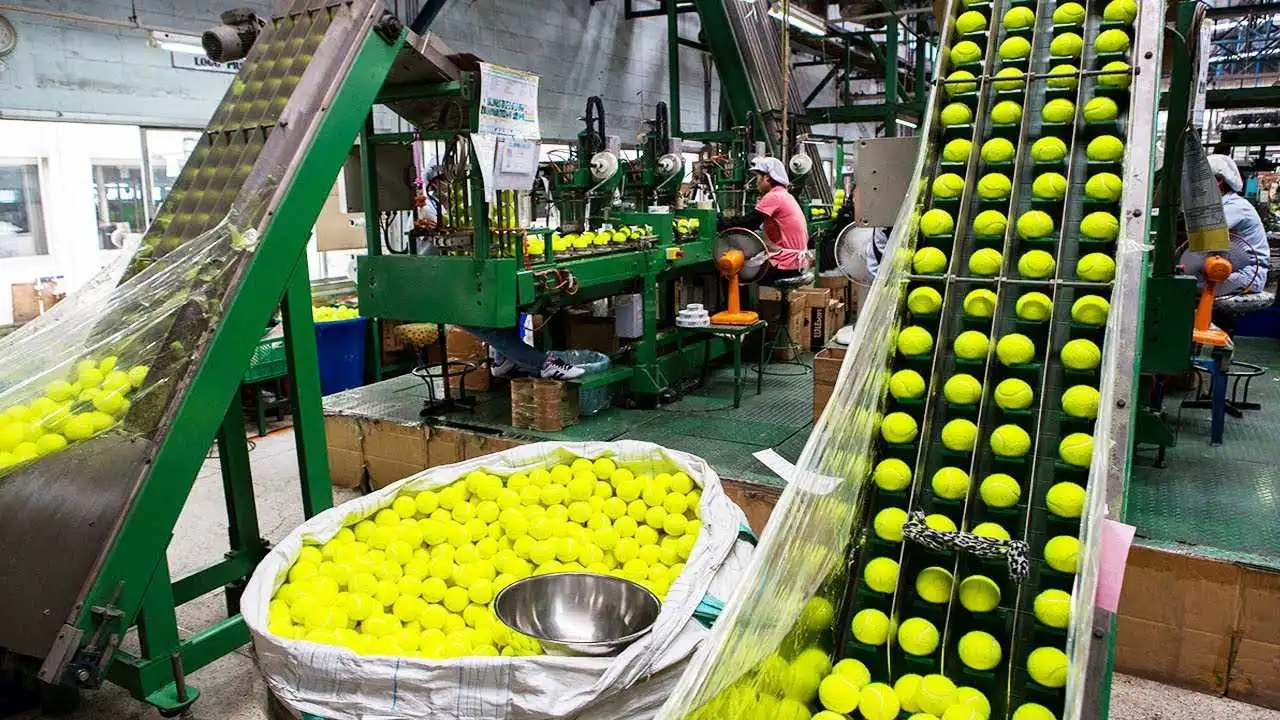Tennis Ball: Starting a tennis ball factory in India can be a profitable business, with tennis and other ball sports gaining popularity in the country. This article will cover the steps to start a small scale tennis ball manufacturing unit with minimal investment including bank loans, government subsidies, returns, challenges and marketing strategies.
Tennis is growing in India, amateur and professional both. Tennis balls are always in demand as they are the backbone of the game. The market for tennis balls is expected to grow exponentially from 2023 to 2030 as tennis training and recreational activities are on the rise.
Table of Contents
Tennis Balls
Knowing the types of tennis balls is key to targeting the right market. The main categories are:
- Regular Duty Balls: For soft surfaces, indoor play.
- Extra Duty Balls: For hard court surfaces, more durable.
- Pressureless Balls: Don’t lose bounce over time, for practice.
- Green Dot Balls: For beginners, slower speed and lower bounce.
Plant Setup
Initial Investment
Initial investment for a tennis ball manufacturing plant is moderate. The main costs are:
- Machinery: Basic machinery for molding and covering the balls can be bought at affordable prices. Must have equipment are rubber mixers, molding machines and felt cutting machines.
- Raw Materials: The main raw materials are rubber, felt and pressurized gas. Cost of raw materials may vary but is manageable for small scale operations.
- Land and Building: A small factory space can be rented or purchased in an industrial area, overhead cost will be low.
Bank Loans and Government Subsidies
Government Subsidies: Indian government has various schemes for small businesses. Programs like Credit Guarantee Fund Scheme for Micro and Small Enterprises (CGTMSE) can help entrepreneurs to get loan without collateral. Ministry of MSME also provides support for setting up manufacturing units which can include financial assistance.
Bank Loans: Many banks in India offer loans to small and medium enterprises (SMEs). Entrepreneurs can approach banks for funding by submitting a good business plan that includes market analysis, expected returns and detailed financial projection.
Manufacturing Process
Here’s how tennis balls are made:
- Rubber Preparation: Rubber is mixed with various compounds to make it stronger and more elastic.
- Molding: Rubber is molded into two hemispheres that will be the core of the tennis ball.
- Felt Application: A layer of felt is applied to the rubber core. Felt is usually made from high quality wool or synthetic fibers depending on the type of ball.
- Pressurization: Molded balls are filled with pressurized air to get the right bounce.
- Quality Control: Each batch of balls should go through quality testing to meet ITF standards.
Expected Returns and Challenges
Financial Projections
ROI for a tennis ball manufacturing plant can be very good due to high demand and low production costs. For example, producing 600,000 balls a year can generate significant revenue, around ₹90 lakhs (around $120,000) per annum.
Challenges
- Competition: The market is competitive with established brands already present. New entrants need to find a way to differentiate their products, maybe through quality or pricing.
- Quality Control: Quality is key, poor quality balls can lead to customer dissatisfaction and damage to the brand.
- Marketing: Good marketing strategies are required to penetrate the market. This includes online marketing, partnerships with local sports clubs and participation in sports events.
Marketing Ideas
- Local Clubs and Schools: Building relationships with local tennis clubs and schools will give you a steady stream of customers. Offer bulk discounts to encourage sales.
- Online: Create a website and use social media to reach a wider audience. Content about tennis and the benefits of using good quality balls will attract customers.
- Sports Events: Sponsor local tennis tournaments to increase brand visibility.
- Retail Partnerships: Get your balls stocked in sports retailers to increase accessibility and sales.
Final Word
Starting a tennis ball manufacturing plant in India is a good business idea that needs to be planned and executed well. With a growing market, low investment and government support, entrepreneurs can succeed. Focus on quality, marketing and partnerships and you will overcome the challenges and make good money in this business.








